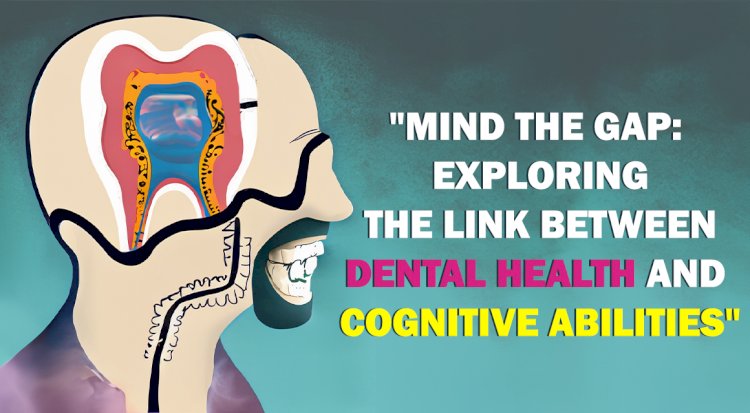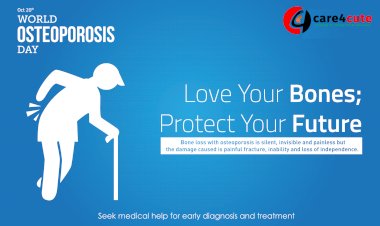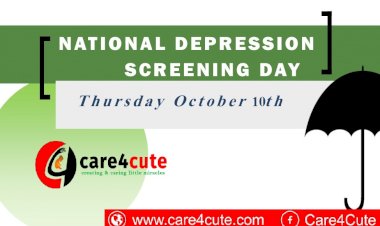Oral Health Matters: Understanding the Influence of Poor Dental Health on the Brain
Oral health matters! But what are the benefits of oral care? Understanding the influence of poor dental health on the brain can help you improve your oral care. Read on to know.

Introduction
In recent years, scientific research has uncovered a fascinating connection between poor dental health and the brain. The link between oral health and overall well-being has become increasingly evident, with growing evidence suggesting that maintaining good oral hygiene practices goes beyond achieving a beautiful smile. This comprehensive article explores the intricate relationship between dental health and brain function, shedding light on the impact of oral hygiene on cognitive abilities and mental well-being. By understanding this connection, individuals can gain valuable insights into the importance of prioritizing oral health and its potential benefits for the brain and overall health.
The Oral-Systemic Connection
Contrary to conventional beliefs, oral health does not solely pertain to the mouth; it has a profound effect on the entire body. Various studies have highlighted a strong connection between oral health and overall health, emphasizing that the mouth serves as a gateway to the rest of the body. As such, poor oral hygiene can lead to a range of systemic health issues. The relation between poor dental health and the brain has garnered significant attention due to the critical role played by oral health in overall well-being.
The Role of Inflammation
An essential factor contributing to the relationship between poor dental health and the brain is inflammation. Chronic inflammation, commonly associated with gum disease, can release harmful bacteria and inflammatory mediators into the bloodstream. These substances may eventually reach the brain, causing or exacerbating inflammation within the central nervous system. Such inflammation has been linked to cognitive decline, memory problems, and an increased risk of neurodegenerative diseases, including Alzheimer's.
Periodontal Disease and Cognitive Decline
Periodontal disease, a severe form of gum disease, has undergone extensive study due to its association with cognitive decline. Research indicates that the bacteria and inflammation associated with periodontal disease can enter the brain, leading to the accumulation of amyloid plaques, which are characteristic of Alzheimer's disease. Moreover, the chronic low-grade inflammation triggered by periodontal disease can accelerate cognitive decline and impair memory function.
Dental Health and Mental Well-being
In addition to cognitive decline, poor dental health has been linked to mental health issues such as anxiety and depression. Dental problems can cause discomfort, pain, and self-consciousness, leading to a significant impact on a person's emotional well-being. Furthermore, the oral microbiome, the diverse community of microorganisms residing in the mouth, plays a crucial role in producing neurotransmitters that regulate mood. An imbalance in the oral microbiome due to poor dental health can disrupt this delicate equilibrium, contributing to mental health problems.
Maintaining Good Oral Hygiene
To mitigate the potential negative effects of poor dental health on the brain, it is essential to prioritize oral hygiene practices. Regularly brushing teeth twice a day, flossing diligently, and using antimicrobial mouthwash can help remove plaque and bacteria, reducing the risk of gum disease and inflammation. Additional practices like tongue scraping and regular use of fluoride can further promote oral health.
The Importance of Regular Dental Check-ups
Regular dental check-ups are vital for maintaining good dental health and detecting early signs of oral problems. Dentists can identify and address issues such as tooth decay, gum disease, and infections promptly. Moreover, dental professionals can provide personalized advice on oral hygiene techniques, diet choices, and lifestyle modifications to promote optimal oral health and prevent potential complications.
Preventing Dental Problems
Prevention is key to maintaining both oral and brain health. Avoiding excessive consumption of sugary and acidic foods and beverages can significantly reduce the risk of dental decay and gum disease. Opting for a balanced diet rich in vitamins, minerals, and antioxidants can support overall oral and cognitive health. Additionally, quitting smoking and limiting alcohol intake can have a positive impact on oral health and reduce the risk of associated cognitive decline.
The Impact of Diet on Oral and Brain Health
A healthy diet plays a pivotal role in maintaining both oral and brain health. Nutrient deficiencies, such as vitamin B12 and vitamin D, have been linked to an increased risk of dental problems and cognitive decline. Incorporating foods rich in omega-3 fatty acids, antioxidants, and essential nutrients can help support optimal oral and brain function.
Stress and its Effect on Oral and Mental Health
Chronic stress can take a toll on both oral and mental health. High-stress levels can lead to teeth grinding, jaw clenching, and temporomandibular joint (TMJ) disorders. These conditions not only cause oral pain and discomfort but also contribute to headaches, muscle tension, and anxiety. Employing stress management techniques such as meditation, exercise, and seeking social support can help alleviate these symptoms and promote overall well-being.
The Role of Sleep in Oral and Cognitive Function
Adequate sleep is essential for optimal oral and cognitive function. During sleep, the body repairs and rejuvenates tissues, including those in the mouth and brain. Poor sleep quality or insufficient sleep can compromise the immune system, leading to an increased risk of gum disease and cognitive impairment. Establishing a consistent sleep routine and creating a sleep-friendly environment can significantly benefit both oral and brain health.
Good Oral Health Habits for Overall Well-being
Maintaining good oral health not only benefits the mouth but also contributes to overall well-being. Along with regular brushing and flossing, adopting additional habits such as using mouthguards during physical activities, replacing toothbrushes regularly, and avoiding excessive teeth whitening can help preserve oral health. These practices, combined with a healthy lifestyle, can contribute to improved brain function and overall quality of life.
Common Misconceptions about Dental Health
There are several misconceptions surrounding dental health that need to be debunked. One common misconception is that dental health is only relevant to the mouth and teeth. However, as discussed earlier, poor dental health can have far-reaching consequences on the brain and overall health. Another misconception is that tooth loss and gum disease are inevitable with age. While age can increase the risk of dental problems, practicing good oral hygiene and seeking regular dental care can help prevent or minimize these issues.
The Link between Dental Health and Aging
As individuals age, the importance of dental health becomes even more crucial. Poor dental health can contribute to systemic inflammation, which has been linked to accelerated aging and an increased risk of age-related diseases. By prioritizing oral hygiene, maintaining regular dental check-ups, and adopting a healthy lifestyle, individuals can potentially slow down the aging process and enjoy better overall health and cognitive function in their later years.
Conclusion
The relation between poor dental health and the brain is a topic of growing interest in scientific research. The evidence suggests that maintaining good oral hygiene practices is not only essential for a beautiful smile but also plays a significant role in supporting cognitive abilities and mental well-being. Poor dental health, particularly conditions like gum disease and inflammation, can contribute to cognitive decline, memory problems, and an increased risk of neurodegenerative diseases. Additionally, oral health issues can impact mental health, leading to anxiety, depression, and disruptions in the oral microbiome that affect mood regulation.
To maintain good oral hygiene, it is crucial to brush teeth twice a day, floss regularly, use antimicrobial mouthwash, scrape the tongue, and incorporate fluoride. Regular dental check-ups are crucial for early detection of oral problems and receiving personalized advice on oral hygiene, diet.
References
-
Chatterjee, S., Peters, S. A., & Milward, M. R. (2018). The Impact of Poor Oral Health on the Risk of Cognitive Decline: A Systematic Review and Meta-Analysis. Journal of Geriatric Psychiatry and Neurology, 31(4), 179-187.
-
Noble, J. M., Borrell, L. N., Papapanou, P. N., & Elkind, M. S. V. (2009). Poor Oral Health as a Chronic, Potentially Modifiable, Systemic Inflammatory Risk Factor for Cardiovascular Disease. Journal of the American Geriatrics Society, 57(8), 1416-1422.
-
Paganini-Hill, A., White, S. C., & Atchison, K. A. (2012). Dentition, Dental Health Habits, and Dementia: The Leisure World Cohort Study. Journal of the American Geriatrics Society, 60(8), 1556-1563.
-
Batty, G. D., Li, Q., Huxley, R. R., & Zoungas, S. (2010). Oral Disease in Relation to Future Risk of Dementia and Cognitive Decline: Prospective Cohort Study Based on the Action in Diabetes and Vascular Disease: Preterax and Diamicron Modified-Release Controlled Evaluation (ADVANCE) Trial. European Psychiatry, 25(4), 299-305.
-
Poole, S., Singhrao, S. K., & Kesavalu, L. (2013). Oral Inflammation, Tooth Loss, Risk Factors, and Association with Progression of Alzheimer’s Disease. Journal of Alzheimer's Disease, 36(4), 857-868.
-
Chen, X., Winckler, B., Lu, M., et al. (2018). Association Between Chronic Periodontitis and the Risk of Alzheimer's Disease: A Systematic Review and Meta-Analysis. Frontiers in Aging Neuroscience, 10, 327.
-
Vergnes, J. N., & Sixou, M. (2010). Preterm Low Birth Weight and Maternal Periodontal Status: A Meta-Analysis. American Journal of Obstetrics and Gynecology, 202(2), 135-152.
-
Noble, J. M., Scarmeas, N., Celenti, R. S., et al. (2014). Serum Omega-3 Fatty Acids and Cognitive Function in Older Adults. Neuropsychology, Development, and Cognition. Section B, Aging, Neuropsychology and Cognition, 21(1), 21-36.



































Comments (0)